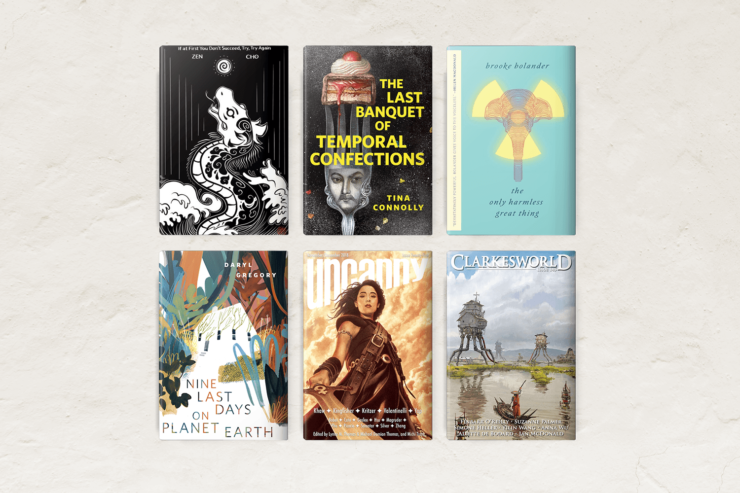In the lead-up to the 2019 Hugo Awards, we’re taking time to appreciate this year’s novel, young adult, and short fiction Finalists, and what makes each of them great.
This year’s Hugo finalists for Best Novelette are a stunning group of talented authors—Brooke Bolander, Zen Cho, Tina Connolly, Daryl Gregory, Simone Heller, and Naomi Kritzer. While each author brings a unique voice and style to their work, one common thread across the novelettes is the focus on means of survival and co-existence, taking a critical look at humanity through the lens of both human and non-human perspectives. Courtiers, invaders, ghosts, elephants, dragons, and lizard-like creatures alike all ask questions about what it means to connect to others and contribute to society at large.
“If at First You Don’t Succeed, Try, Try Again”—Zen Cho (B&N Sci-Fi & Fantasy Blog)
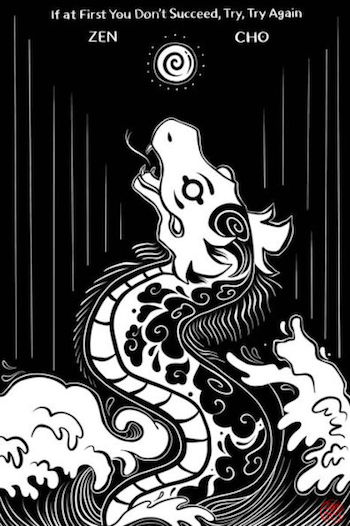
Haven’t we all wanted to be more? Don’t we all, in our small ways, make attempts to better ourselves, to become the version of us we’ve always wanted to be? In Zen Cho’s story, an imugi called Byam is trying to become a dragon—a process that takes years of studying the Way, years of spiritual concentration and dedication. Byam, if successful, will be accepted by heaven and given the power of flight. During a flight attempt, Byam is spotted by a human and, naturally, decides it needs to eat her, and shapeshifts to get close to her. All the years spent trying to become a dragon could not have prepared Byam for life in a human body. Zen Cho’s masterful story takes place at the crossroads of hope and fate, where sometimes, ascending isn’t always what we think it is.
–Christina Orlando
“The Last Banquet of Temporal Confections”—Tina Connolly (Tor.com)
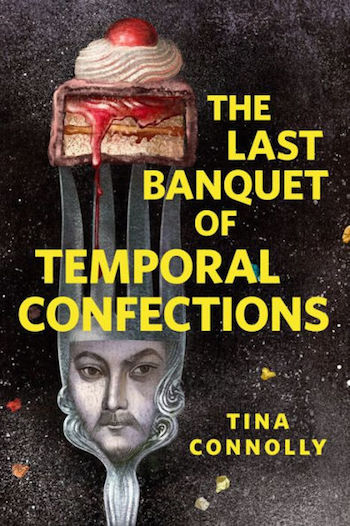
With a chilling conceit and flawless execution, Connolly brings the reader into the world of Saffron, a poison tester for the Traitor King. (He’s actually a Duke who unseated the rightful regent following the king’s death.) She fell into this position because her husband has a special talent—his baked goods, made with the magical ingredient rose-thyme, allow the diner to recall certain memories, each dependent upon the baked good itself. The Traitor King knows that the baker would never kill his own wife with his food, so he keeps Saffron at his side for every Temporal Confection Banquet, and she tastes his food before explaining each delight to the guests assembled. But this time something is different. Her husband’s skill seems to have grown, and he’s using the food to draw up nested memories and communicate something to her… but what?
At the heart of this tale are questions of resistance, the many ways someone can fight against those in power, and how a person must train themselves to be truly effective at dissembling. Saffron feels guilty for not doing more to stop the Traitor King as his power grew, and she’s promised herself that if she can do anything to contribute to his downfall, she will. But it takes time to learn those skills, and it’s a frightening position to be in when confronted with the price of failure. Connolly captures that terror down to the letter, how it feels to know that you must act for the sake of your home and the people you love, even if it means forfeiting your life. It is a story full of both comfort and strength, with an ending too delectable to be missed.
–Emmet Asher-Perrin
“Nine Last Days on Planet Earth”—Daryl Gregory (Tor.com)
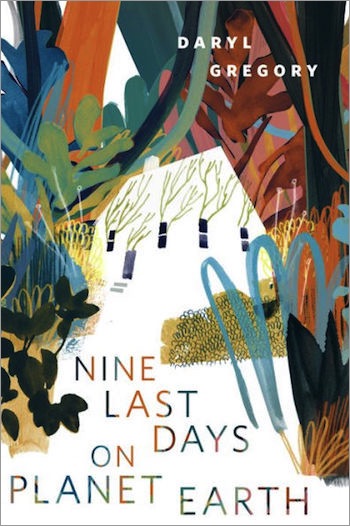
Of the Hugo-nominated short fiction I have read so far, the one that speaks to me the most is Daryl Gregory’s “Nine Last Days on Planet Earth.” It’s the story of an Earth-changing interstellar event whose beginning telegraphs a global apocalypse, but it turns into much more than that. It tells an alternate history of Earth starting with the night of a cosmic event that changes the planet, and humanity with it. The narrative, told from the perspective of one person, spans almost a hundred years in intervals that are sometimes a year, sometimes decades apart and interweave parallel tales of familial ties and societal changes that are slow-moving and radically paced at the same time. “Nine Last Days on Planet Earth” weaves its narrative strands about a slow-motion, non-violent invasion of Earth tightly and expertly. It left me very impressed with its elegiac tone and the way it confounded my expectations, and it has my recommendation for the Best Novelette category.
–Marko Kloos
The Only Harmless Great Thing—Brooke Bolander (Tor.com Publishing)
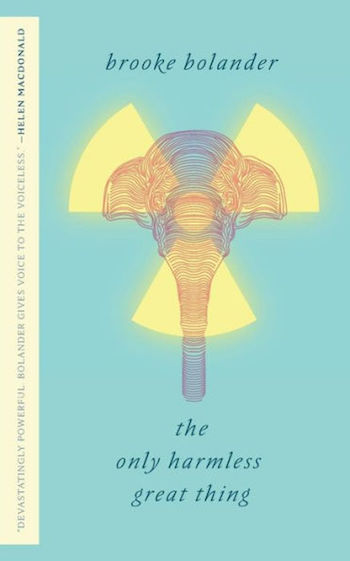
Stories about humans connecting with other sentient forms of life on Earth largely focus on primates and dolphins—David Brin’s Uplift novels come to mind as a prime example of this. For The Only Harmless Great Thing, Brooke Bolander opts for a different direction, telling the story of an alternate timeline in which elephants worked alongside young women in hazardous industrial environments in the early 20th century. Bolander evokes her characters neatly, and in doing so blends a high-concept premise with a moving consideration of intelligence and humanity. At a time when the inner lives of elephants are being considered more and more, Bolander’s story resonates even more.
–Tobias Carroll
“The Thing About Ghost Stories”—Naomi Kritzer (Uncanny Magazine)
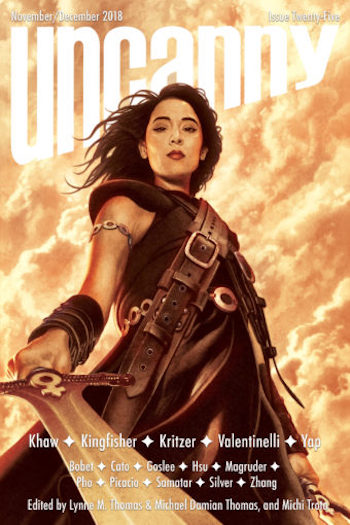
Like many of the best ghost stories, Naomi Kritzker’s isn’t really about shocking you or frightening you, or even creeping you out. While there are some lovely goosebump-filled moments, the point of “The Thing About Ghost Stories” is really to sit down and have a quiet chat with Death. That this conversation is wrapped in an absolutely spot-on commentary on the travails of academia only adds to the joy of reading it. Plus how can you resist a story that builds a riff on the Aarne-Thompson-Uther classification system—but for ghosts?
–Leah Schnelbach
“When We Were Starless”—Simone Heller (Clarkesworld)
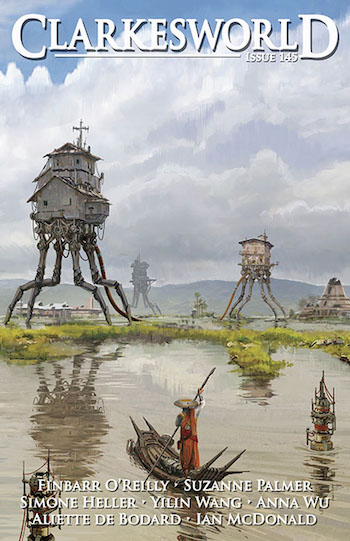
I believe that language can do incredible things. I believe that the crafting of language, in the way that great writers do, can create depths, pitches, and planes in a work that perhaps the writer didn’t even intend, at the start. “When We Were Starless” is a story that works in these multitudes—examining life from many angels. The story centers on a tribe of nomadic lizard-like creatures who repurpose the ruins of old, war-ravaged cities. Our narrator, referred to only as ‘Beloved’ by the tribe’s captain, is particularly skilled at ridding these ruins of ghosts—the remnants of the civilization that has come before. But when Beloved is called to take care of a seemingly simple ghost problem, their interaction with this particular entity is much more than they could have possibly expected. This story is about survival, exploration, and understanding. And the prose is, just, *chef’s kiss*
–Christina Orlando










